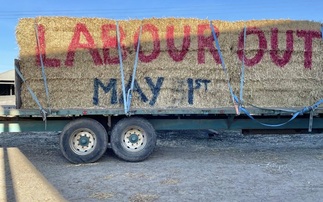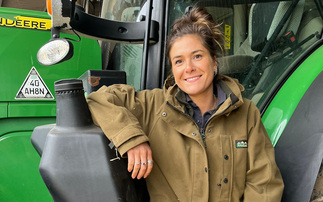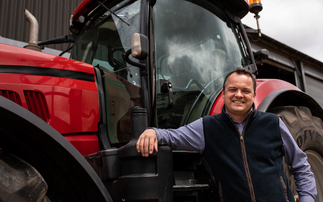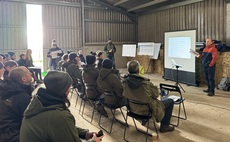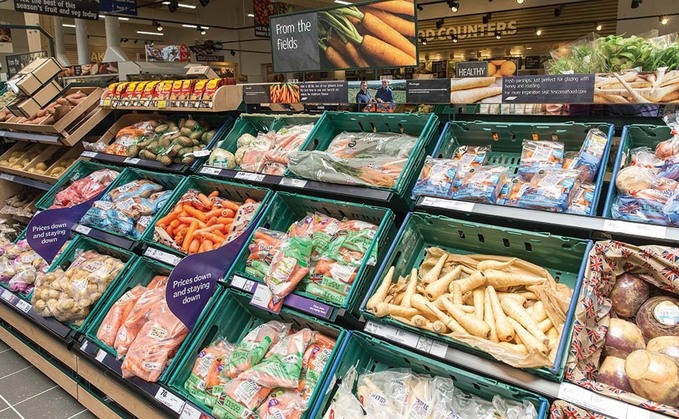
With increasing prices and worries over food on the horizon, cookbook author Jenny Jefferies offers her top tips on how to shop more mindfully this season.
The days are shorter and the nights are longer. Fuel and energy prices are at a record high. Family and friends yearn for much needed assistance and comfort to help with the current and startling increase of the cost of living.
This month I endeavour to offer guidance on what we can do collectively and individually to help make our food go further, to shop wiser, to prepare our meals in advance, and what we can do and where we can go to both offer, and seek, culinary relief and support.
Here are my top 10 tips on how to shop, cook and enjoy your food this season.
- Check cupboards and pantries and make a shopping list prior to heading out to the market and shops. Creating a meal plan before you go will make time and energy in the kitchen more efficient and will allow you to use food and produce wisely and to their full potential.
- One can become in tune with their corner shop, local supermarket and/or farm shop as to when they reduce prices of local produce. It is definitely worth finding out the regular day and time of the week when they select certain foods and items to be heavily reduced to clear shelving to make room for more goods arriving. Stockists much prefer to sell food rather than waste food.
- The use by dates are not necessarily when you must consume the produce by. It is just a guidance and should be treated as such. More often than not food and drink can last a lot longer than whats guided on the label and should not be thrown away just because of what is there. One would hope that common sense prevails.
- There are many initiatives in both urban and rural areas that provide for other people. Your local place of worship, Reading Rooms, Village Hall, supermarket, corner shop, may shout out for donations of food where others can pick up discreetly if needed. Whenever I do any food shopping, I often provide an extra bag of staple items such as tins, pasta, eggs, cooking oil, potatoes and cheese to a fantastic project in our village that gives to families in the local area.
- A roast chicken is always a favourite in my home because it can go a long way. It can feed a family of four for Sunday lunch, chicken sandwiches or a chicken ploughmans on a Monday, and the carcass can be used to make a stock or a soup using any left over vegetables on Tuesday. Any surplus can be frozen for use on a later day.
- Other similar recipes include a beef or lamb bolognaise that can be batched cook and can later be used with spaghetti, in a lasagna, in a pie, or in stuffed peppers and aubergines for example.
- You can often select cheaper cuts of meats to cook with such as lamb neck, beef brisket, pork belly, to name but a few. Get to know your local butcher or farm shop and make use of their great knowledge and expertise.
- There is sometimes the option of growing your own food; in your garden, allotment, window sill or in a community garden. Even if it is something so simple as a tomato or basil plant, there could be an opportunity.
- The stress, anxiety and mental health issues caused by food poverty is truly awful and at times impalpable. This country thrives off charity and there are many charities out there who can help. Please see a list of charities and their contact details at the end of this article.
- Keep it simple. Cooking does not have to be stressful or intimidating. Food can mean different things to different people, so be thoughtful, kind and mindful, especially this winter.
Help is out there
Charities:
The Farm Safety Foundation aka Yellow Wellies, works closely with Young Íæż½ã½ã Clubs, the NFU and a range of farming organisations to help raise awareness of farm safety and mental health awareness among young farmers, they challenge and change their attitudes towards farming safely and reduce the toll of injuries and fatalities which bring heartbreak and misery to numerous families and rural communities every year. The Foundation also continues to work closely with the Farm Safety Partnerships of England, Scotland, Wales and Northern Ireland.
Tiddington Rd,Stratford-upon-Avon CV37 7BJ+44 1789 416065
www.yellowwellies.org
R.A.B.I. provides financial support to farming people of all ages, as well as their dependants. Many of those we support are retired people who are struggling to get by on low incomes. They also help people in times of crisis due to such things as accidents, illness, animal disease or extreme weather.
Royal Agricultural Benevolent Institution,Shaw House,27 West Way,Botley,Oxford OX2 0QH+44 1865 724931
www.rabi.org.uk
FCN has strong and longstanding links with the farming community and agriculture throughout England and Wales. Their volunteers are all farmers or are associated with farming and understand the problems facing agriculture today. At FCN they understand how interconnected the farm business and household are and have helped thousands of farmers.
The Farming Community Network,National Office,Manor Farm NN6 7AQ+44 1788 510866
www.fcn.org.uk
The Addington Fund provides homes for farming families living in England and Wales who have to leave the industry and by doing so will lose their home, and also offers emergency grants in times of hardship.
ADDINGTON FUND,Barford Exchange,9 Wellesbourne Rd,Barford CV35 8AQ+44 1926 620135
www.addingtonfund.org.uk









